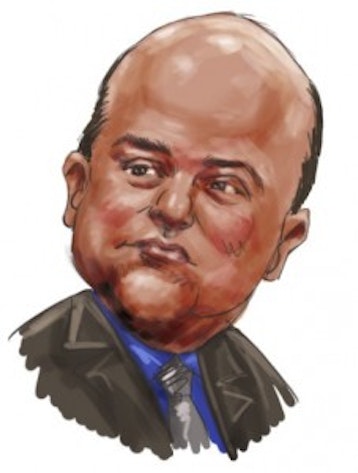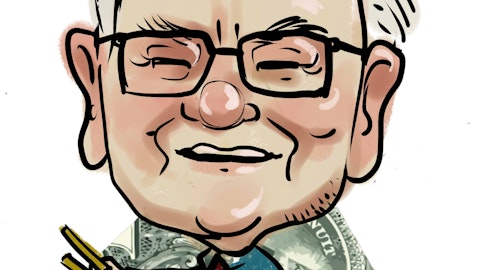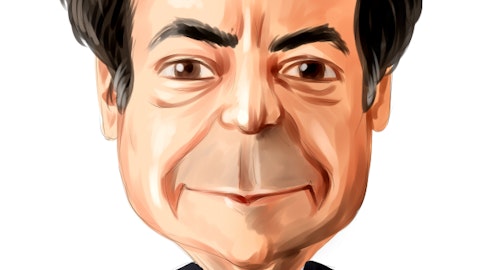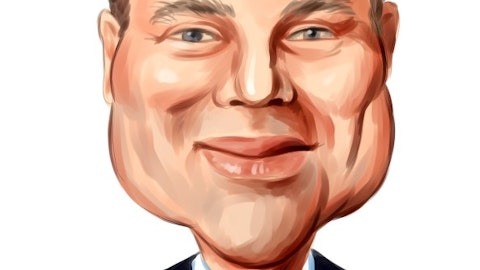
Citigroup’s (NYSE: C) big news came in the form of a recent divesture. The company is selling half of its ~$3 billion stake in Akbank, a Turkish bank vis-à-vis an IPO. We were not surprised by the asset sale given Q1 losses in currency hedging that amount to over a billion dollars. Although, since Akbank shares are down ~20% since Citi announced its plans, its 404 million shares may be worth closer to $1.1 to $1.2 billion. Citi will hold onto its remaining ~10% stake in Akbank for at least three years. This is a logical move given Basel III capital restrictions. Citi’s billion-dollar hedging loss went practically unnoticed compared to the fanfare that JPMorgan’s loss got, and we think that JPM is still a better pick in the financial institutions universe.
The newly merged United Continental (NYSE: UAL) is held by Joshua Berkowitz, Paul Reeder, Charles Davidson, and Ken Heebner. With the integration underway and lower fuel prices, we are more favorable on UAL. However, the increasingly competitive Southeast Asia characterized by low yield and some aggressive capacity additions have us concerned. This is an area we are very focused on as applied to airlines and think that as changes in Frequent Flier policies and ticket pricing systems are worked out, UAL may show better results in the region. And depending on how UAL hedges fuel prices, it may even see a decline in costs next year. With all these positives though, we are just not that interested in the airline business, which continues to be extremely competitive for the larger carriers as low cost carriers continue to take market share.
Google (NASDAQ: GOOG) recently completed its all-cash acquisition of Motorola Mobility (MMI) for $40 per share. US regulatory hurdles were cleared relatively quickly, while China’s anti-trust board held out for awhile before approving. China’s anti-trust board stipulated that GOOG would need to keep its Android platform open source for a minimum of five years. Also, GOOG won’t be able to use one original equipment manufacturer (OEM) as a pre-Android test release. Dennis Woodside, formerly President of Google Americas, will head MMI. We think GOOG paid a fair price for the asset, but do not foresee it contributing to profitability in a meaningful way. Google is the second most popular among hedge funds right now (see 10 most popular stocks).
Qualcomm (NASDAQ:QCOM): Overall, we think QCOM management has been conservative in unit and average selling price (ASP) guidance of 915 million and $212, respectively. Demand has been improving for its 28nm chips: Snapdragon 8960 and MDM 9×15. At the end of the year, we see the rollout of the APQ 8064, devices with the Snapdragon 8×30, and a quad core standalone apps processor, will serve as catalysts for the stock, creating momentum for 2013. We note that 28nm capacity issues have been squeezing margins but that an average selling price (ASP) for both chipsets and devices above guidance will keep those concerns at bay. Our opinion on the 28nm supply issue is that it is temporary. Management has employed partners like Samsung and Global Foundries to meet the capacity needs, and we believe this will suffice. Furthermore, we are eager to see that QCOM is able to monetize the opportunity for Windows on ARM (Windows RT). We are bullish on QCOM. Billionaire Steven Cohen significantly boosted his stakes in QCOM during the first quarter (see Steve Cohen’s new picks).
Goodyear Tire & Rubber (NYSE: GT) is one of the more attractive stocks in the auto parts space. The company is on to track to meet 2013 guidance of $1.6 billion in segment operating income, $1.5 billion in EBIT, and $500 million in FCF (pre-pension pay-down). Europe remains our primary concern. Specifically, we think management’s assumptions for a 3% to 5% decrease in European passenger replacement tire is a bit optimistic; we think a 5% to 7% drop may be more realistic. Additionally on the Europe front, we would not be surprised by dealers trying to thin out its inventories ahead of the tire labeling rules that scheduled to take effect in November. If European volumes are flat, GT should still be able to hit it targets, but if European volumes see a decline, we are less certain. If GT goes ahead and closes the Amiens plant, that would contribute about $100 million to the cash balance and provide some cushion. We like GT relative to its peers but don’t think it can trade above 4.0x EV/2013 EBITDAP (Earnings Before Interest, Taxes, Depreciation, Amortization, and Pension Income) without more catalysts.




